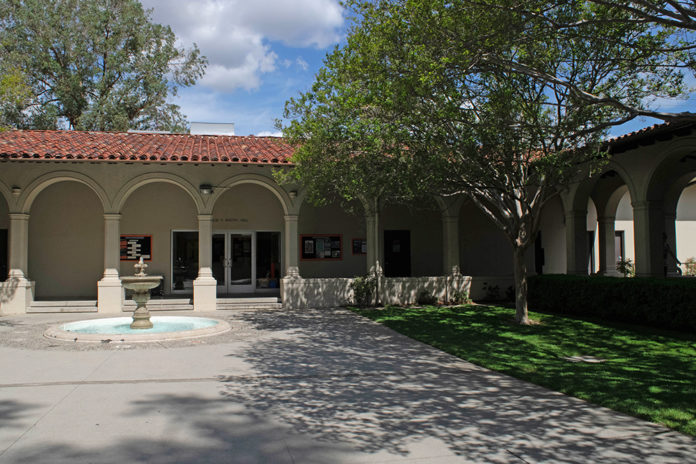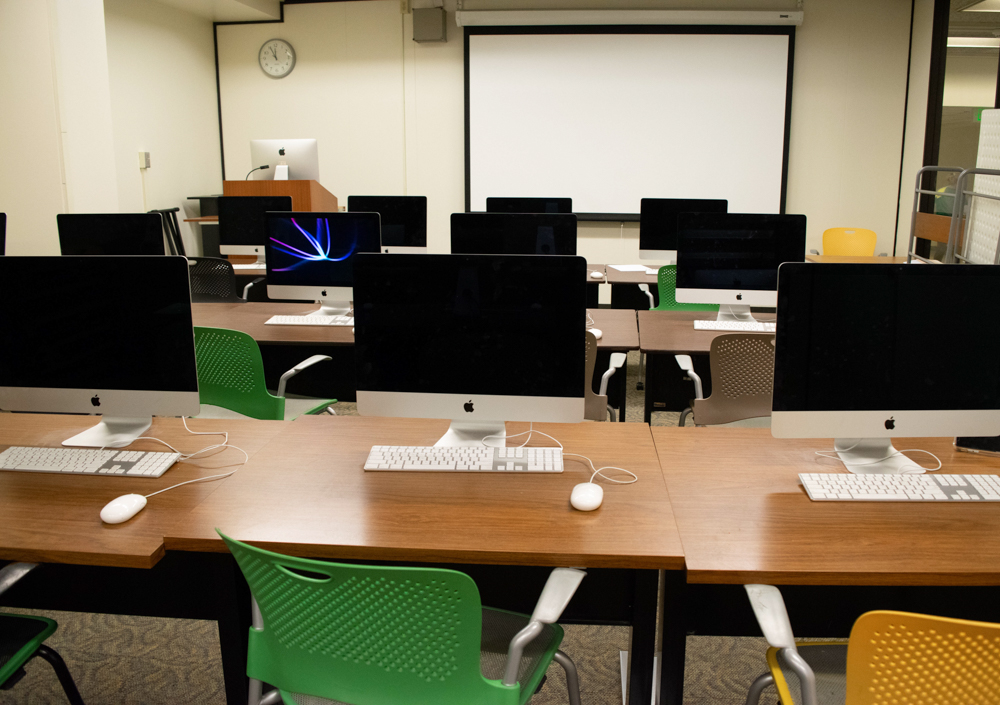
The music department at Occidental is among the top 20 music programs in the nation, according to an article published by Billboard March 25. According to music department chair and professor David Kasunic, Occidental is the only liberal arts college on the list, a result of its unique location in Los Angeles and the recently introduced music production major.
“We will offer the skill sets and the training through our being in Los Angeles and through our alumni network, through internships, through bringing people from Los Angeles just down the road to campus to be part of our program,” Kasunic said. “So it’s really threading our curriculum to the surrounding city and to have more of the DNA of our music program look like the DNA of Los Angeles.”
The program’s location allows it to bring professionals from the music industry to campus, according to music production professor Jongnic Bontemps. Bontemps — who has worked with rapper Nas and singer Erykah Badu — said Los Angeles is a place where musicians in the prime of their career are able to teach while still actively pursuing their career. Introduction to Songwriting (MUSC 252) is currently taught by professional singer Ramona Gonzalez, otherwise known as Nite Jewel, who graduated from Occidental in 2009. The department also brought bassist Esperanza Spalding to perform in Thorne Hall Feb. 2018 and honored her as the Hume Fellow in the Performing Arts for 2018.
“The ability to have the studios, producers, record labels, and then on top of that, industries that consume music — the movie studios that are here, the TV studios, they’re all here,” Bontemps said. “So there’s a vibrant music community at every single level, whether it’s the indie artists or the film composers. We have the full gamut here. And students are able to participate in that culture, just by the location.”
Kasunic said the department received a grant from the Mellon Foundation to have a speaker series on music production and brought Ludwig Göransson to campus, the composer who won Best Original Score for “Black Panther” at the 2019 Academy Awards. Göransson has also produced music for Childish Gambino, such as “Redbone” from Gambino’s 2016 album “Awaken My Love.”
Professor Adam Schoenberg, who was nominated for a Grammy in 2017 for Best Contemporary Classic Composition, said film composer Thomas Newman spoke at the college a few years ago. Newman scored “Skyfall, “and is behind the soundtrack for films such as “Finding Nemo,” “Finding Dory” and “The Shawshank Redemption.”
“There’s just so much more access to all things industry-related that you wouldn’t really get elsewhere,” Schoenberg said.
The introduction of a major path specifically for music production has played a significant role in strengthening the music department, according to Bontemps. Within this path, students are able to learn traditional elements of music and apply them to music production, a more contemporary discipline.
“Our students are still required to take all of the basic, or at least the fundamental things around music: music theory, music history, keyboard skills, playing an ensemble,” Bontemps said. “What we layer onto music production are really the tools that you need to make modern music. ‘Modern music’ meaning pop music, hip hop, rock music and how technology really shapes how those genres are conceived, produced and finally released into the world.”

Anoop D’Souza (senior) was the first music production major at Occidental and worked with Kasunic and Schoenberg to structure and organize the major path. D’Souza, one of many student musicians at the college, said having this combination of modern and traditional aspects in the curriculum has helped improve his music.
“I used to resist the theory and all that kind of stuff,” D’Souza said. “But now I’ve taken theory in ways that I never thought I would apply to my own production and [it’s] actually helped me become a way better producer than I used to be.”
According to Kasunic, one of the benefits of studying music at Occidental as opposed to a conservatory is that students aren’t confined to only learning music. A department at Occidental can require at most 48 units for a student willing to major in that subject, meaning music majors can take a variety of classes along with their focus.
“We want you to be not just a well-rounded musician, but a well-rounded thinker and scholar and citizen who will be a leader in creative fields,” Kasunic said. “We’re not setting up our students just for the immediate next step and that technical training to snag that job. We hope that we’re setting them up for the long haul; for the third job, the fifth job, for the nimbleness that’s required of life to solve problems on the spot and to find creative solutions.”
Concert Manager Calvin Lesko ’12, who majored in music while at Occidental, said that he enjoyed having that type of balance in his education. Lesko said he took Japanese, Russian, chemistry and Cultural Studies Program (CSP) classes, all of which helped improve his communication and critical thinking skills. In addition to receiving a more well-rounded education, Lesko said studying music at a liberal arts college allows one to be more self-directed.
“I’ve seen students here who are ostensibly music production majors, but they’re also really good singers and so they combine those skills into, ‘I’m going to produce my own tracks and sing over them and then perform them live,'” Lesko said. “That’s pretty cool to be able to do that.”
Kasunic said there are further plans to strengthen the music program by improving its infrastructure, as students are currently only able to produce in the OMAC lab in the bottom floor of the library. Specifically, the department plans to convert the music library on the lower floor of Booth Hall to a dedicated computer lab, recording studio and sound booth. According to Kasunic, this remodel will allow students to produce music on-site and have instructional facilities that will give them more ability to experiment and work.
![]()






























